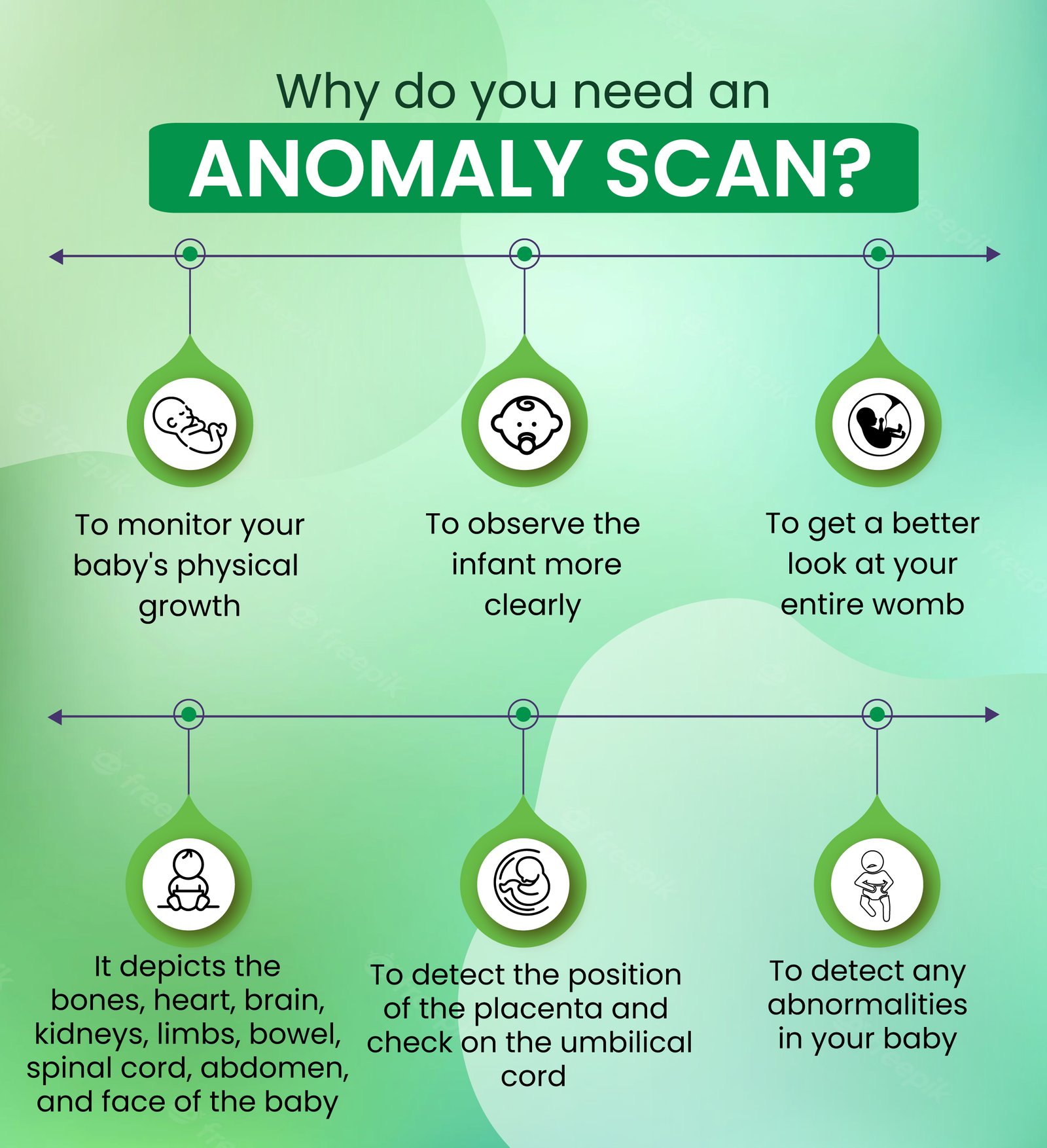An anomaly scan during pregnancy is also referred to as a mid-pregnancy test because it is performed around the 20th week of pregnancy.
Your growing baby is now 35cm long from crown to heel and weighs around 570g. This ultrasound scan is typically used to examine the baby’s physical development and growth.
During the pregnancy, this scan allows you to get a better look at your baby and the entire womb. Let’s get into the details of the anomaly scan in this post.
Any pregnancy scan is only performed with your permission, and it is your primary responsibility to keep an eye on your baby. You can even have your test done at Jammi Scans, where our team of fetal medicine specialists and expert sonographers will assist you and be there for you throughout your parenting journey.
If you have any pregnancy complications, our experienced gynecologist-obstetrician will rule them out.
Table of Contents
ToggleWhy do we need an anomaly scan during pregnancy?
To be clear, there are numerous advantages and reasons to have this test performed. We recommend that you do not skip the anomaly scan or any other required pregnancy tests.
It can detect severe conditions like
- Exomphalos
- Anencephaly
- Gastroschisis
- Diaphragmatic hernia
- Bilateral renal agenesis
- Cleft lip
- Serious cardiac abnormalities
- Open spina bifida
- Lethal skeletal dysplasia
- Patau’s syndrome or T13
- Edwards’ syndrome or T18
The majority of the time, the scan reveals that the baby is growing normally, but occasionally the sonographer will discover or suspect a problem.
Can we miss the anomaly scan?
Pregnancy typically progresses normally and without any issues. However, there may occasionally be delays in the fetus’s growth while it is inside the mother. These are referred to as birth defects or fetal anomalies.
Certain congenital abnormalities can be detected by ultrasound technology and other diagnostic tests, which is important because it can help doctors treat these conditions and parents be ready for their management once the child is born.
Do not fret, our medical staff at Jammi Scans is with you.
Can the anomaly scan be done after 24 weeks?
An anomaly scan is also known as “the twenty-week scan” or “the detailed scan.” It is typically performed between 18 and 21 weeks of gestation because this is the best time during pregnancy to examine all of your baby’s anatomy in great detail.
How accurate is an anomaly scan?
This ultrasound scan is very accurate, but it cannot detect 100% of congenital abnormalities. We expect the scan to detect at least 95% of cases of spina bifida, 80% of cases of cleft lip or palate, and 60% to 70% of cases of congenital heart disease.
This scan can also detect 50% to 70% of Down syndrome cases, but only an amniocentesis can provide this information for certain. It is also important to understand that ultrasound scans during pregnancy do not detect conditions such as cerebral palsy or autism.
Ultrasound markers are signs that babies with chromosomal abnormalities may have. Thick skin in the neck, excess fluid in the kidneys, short arms or legs, white spots in the baby’s heart or abdomen, or choroid plexus cysts in the brain are examples of these.
While these markers are present in some babies with chromosomal abnormalities, it is important to remember that they are also present in many normal babies. If the scan reveals a problem, you will be notified right away. You will be able to discuss the findings with a fetal medicine consultant right away.
The Jammi Scans Team
If an issue is discovered in your anomaly scan, do not worry. You will receive full support.
Our team of doctors will make sure you and your baby are healthy and active throughout the pregnancy via regular checkups. They help you with all the diagnostic procedures required to rule out any anomalies and give you the chance to gain knowledge on how to deal with pregnancy’s discomforts.
The best healthcare is provided for women, newborns, and children at Jammi Scans. There are myriad reasons to trust in us, so do so! Contact and book your anomaly scan now.
Also, learn about routine pregnancy scans and what their reports mean.
Chennai Women’s Clinic is now Jammi Scans







